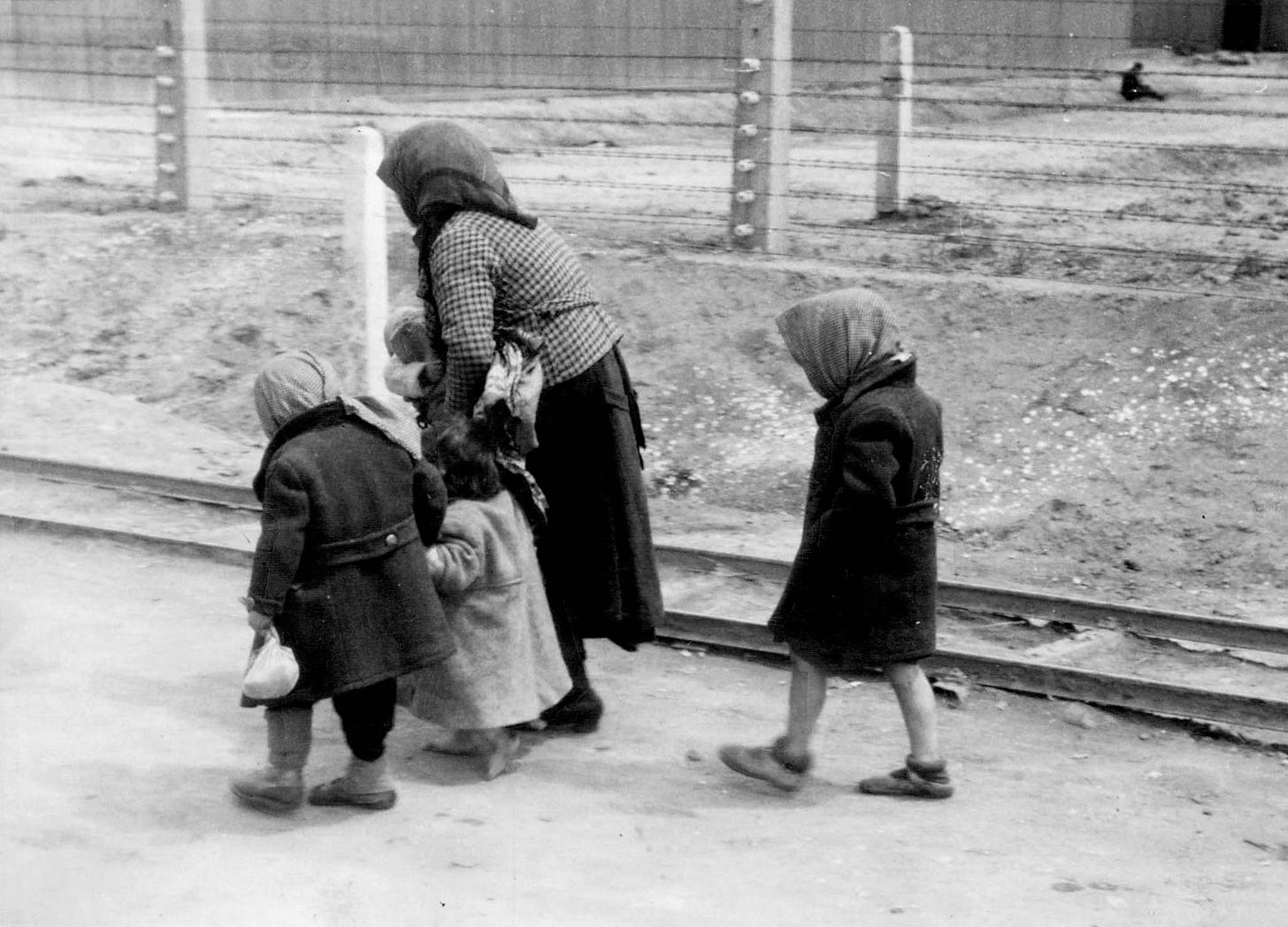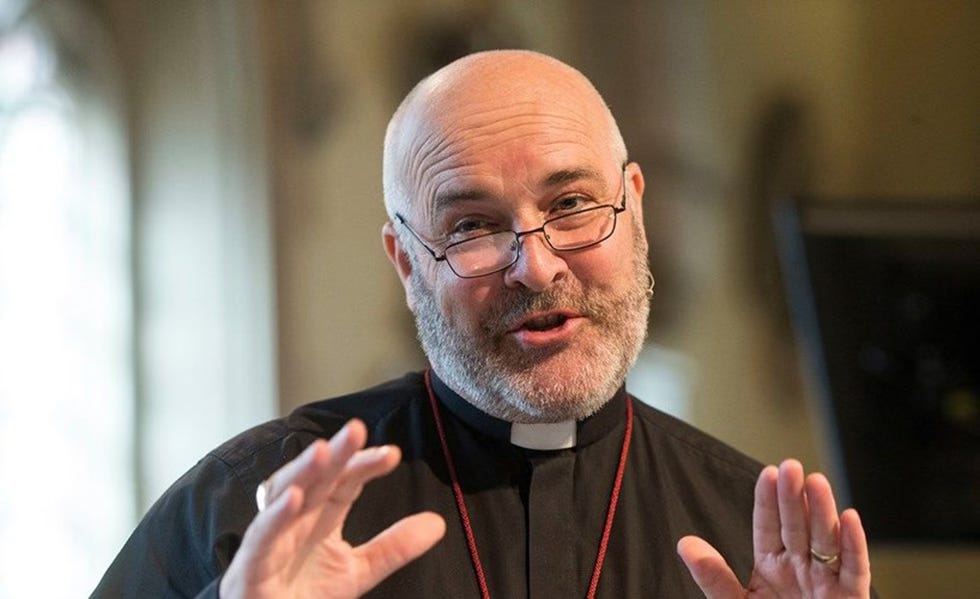Archbishop of York’s ‘genocidal acts’ charge against Israel is neither wise nor appropriate
Hamas, on the other hand, kills indiscriminately.
The Archbishop of York, Stephen Cottrell, claims that Israel has committed “genocidal acts” in Gaza. Since the archbishop is an expert neither in the ethics of war nor in Middle Eastern affairs, it’s not clear why he thinks his view should carry any weight. Nor is it clear whom he is addressing and to what end.
Is he trying to persuade the Israelis – really? Or is he just showing solidarity with Arab Christians or signalling his “progressive” virtue to the domestic circles in which he moves? I yearn for the day, when, following the ancient Hebrew prophets – not to mention Jesus – the bishops of my Church of England open their mouths to address important matters that no one else is attending to and to speak incisive truths that no one else is already voicing. That would be genuinely prophetic. But this is not that.
Then there’s the question of what the archbishop actually meant. According to the Church Times (November 18), he deliberately chose to speak of “genocidal acts” rather than “genocide”. Why would that be? One charitable, plausible explanation is that he understands the latter to refer to a state policy intending the systematic annihilation of a people, and he does not wish to accuse Israel of that.
If so, he’d be quite right. According to the 1948 UN Convention on the Prevention and Punishment of the Crime of Genocide, “genocide” is a set of “acts committed with intent to destroy, in whole or in part, a national, ethnical, racial or religious group, as such” (Article II).
Most unfortunately, this definition fails to distinguish clearly the morally different ways in which a people can be “destroyed”: the constituent members of an ethnic group can be comprehensively exterminated, or the ability of an ethnic group to form a coherent political entity – and become “a people” – can be prevented.
My view is that, however unjust the political suppression of a nationalist minority may be, it is not, in terms of moral gravity, the same as Auschwitz. And sometimes preventing a people from constituting a polity may be just. These two kinds of “genocide” need to be distinguished in a way that international law does not. Indeed, since I think that the Nazi death camps are the paradigm of genocide, at least in the Western imagination, I believe it best not to refer to national political suppression – such as appears to be the intention of the policy of expanding settlements in the West Bank – as genocide at all.

It is possible that, through its military operations in Gaza, the Israeli government intends the systematic extermination of the Arabs there. But that hypothesis lacks adequate grounds. The large number of civilian casualties alone – maybe around 44,000 – is not sufficient evidence of exterminationist intent.
In waging war against the genocidally racist empire of the Nazis, the Allies killed about 70,000 French civilians and a further 60-80,000 non-combatant Italians. They didn’t want to cause those deaths, but the urgent necessity of overcoming the Nazi enemy and the available military means of doing so meant that civilian casualties on a large scale were, tragically, unavoidable. The same could well be true of the Israeli Defence Force’s prosecution of the war against Hamas, which, judging by its constitutional determination to destroy Israel and the sadistically atrocious character of the massacre of October 7, 2023, really is “genocidal”.
Indeed, the fact that Israel has permitted aid to civilians at all, and that the IDF customarily warns them of impending military action, is surely clear evidence that total, “genocidal” extermination is not its aim.
Nevertheless, Archbishop Stephen accuses Israel of “genocidal acts”. By this he means “deliberately indiscriminate acts”, such as “[w]hen hospitals and schools are targeted, when children are targeted”. However, according to the Christian tradition of “just war” reasoning, with its principle of double effect, this thinking is confused. We often deliberately embark on an action, wanting one effect, but knowing that what we do will probably cause another effect we don’t want. The effect we want, we intend; the effect we don’t want, we reluctantly accept.
I can deliberately embark on a course of military action that I foresee will endanger the lives of civilians, while not intending to kill them. Allied pilots and artillery regularly did that during the Second World War. They intended to strike the enemy, but they could not avoid striking civilians along the way. For sure, it’s not enough merely to regret prospective civilian deaths. One must also seriously consider other, less dangerous ways of achieving one’s military aim, and one must take all practicable steps to minimise the risk to civilians. That said, it remains the case that not everything we cause deliberately do we intend. International law, like moral common sense, recognises that.
There is no doubt that Hamas intended to kill indiscriminately on October 7, because we know that they intentionally hunted down the old, the young, and the infant. We’ve watched the video recordings. In contrast, the fact that the Israeli military have targeted buildings where they know civilians are present, is no proof that they intend to kill them. For it may be that their intended targets are Hamas sites, to which, tragically, civilians are located dangerously close.


Given the evidence known to me, I don’t think that the IDF has generally acted indiscriminately. That is not to say, however, that I consider all of Israel’s recent military actions in Gaza morally justified. I’m not expert in Israeli government and military policy. Nonetheless, it seems to me that a terrorist organisation such as Hamas is not the kind of thing that one can simply destroy, once and forever. Therefore, in that Israel’s military operations in Gaza have aspired beyond the immediate disabling of Hamas’s military power to stamp it out completely and permanently, I reckon them futile and the deaths they’ve caused unjustified.
Moreover, Christian “just war” thinking requires military activity to be integrated into a larger political strategy for achieving a sufficiently just and lasting peace. I have searched in vain to see what the present Israeli government’s plans for peace are and how its military actions serve them.
For these reasons, I currently consider Israel’s recent military operations to have been “disproportionate”. Nevertheless, it was not appropriate for the archbishop to describe them as “genocidal”. It was also very unwise. The excessive charge of Israeli “genocide” has been used to justify the no-holds-barred, atrocious, sadistic horrors of October 7. And the enthusiastic recourse to it of too many stinks of antisemitic prejudice. Add to that the history of antisemitism in the Christian church itself, and the Archbishop of York should have been much, much more cautious.



I agree with your comments here - I admire your approach to issues and circumstances in need of critical (as in criticizing) analysis. However, if I had been writing this piece, my words for the cleric would have been much, much more harsh.